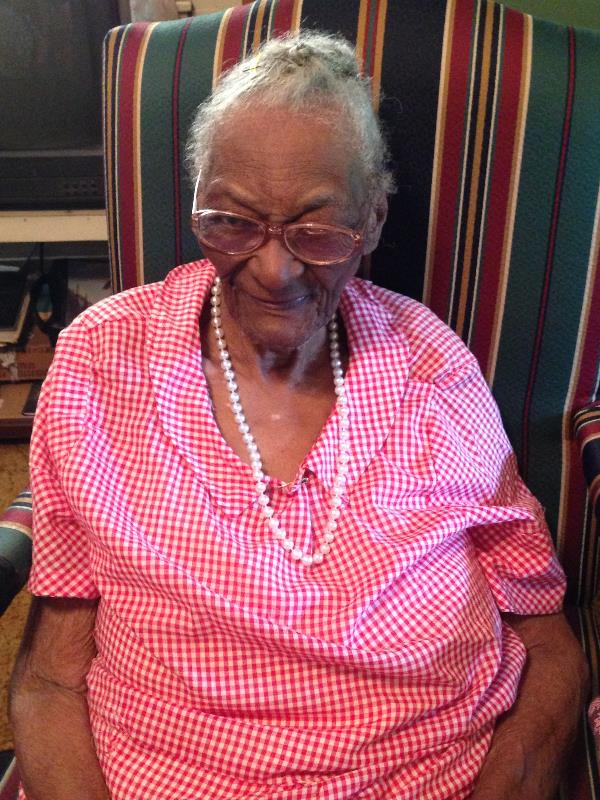filter posts:
Date
How do we make important decisions?
 A young lady was sunbathing on the beach when a little boy in his swimming trunks, carrying a towel, came up to her and asked, “Do you believe in God?” She was surprised by the question, but she replied, “Why, yes, I do.”
A young lady was sunbathing on the beach when a little boy in his swimming trunks, carrying a towel, came up to her and asked, “Do you believe in God?” She was surprised by the question, but she replied, “Why, yes, I do.”
Then he asked her, “Do you go to church every Sunday?”
Again, her answer was, “Yes!”
He then asked: “Do you read your Bible and pray every day?”
Again she said, “Yes,” but now her curiosity was very much aroused.
The little boy sighed with relief and said, “Will you hold my money while I go swimming?”
Now there’s a wise little boy. He wants to go swimming, but he also wants to keep his money. We see him struggle through the process of making a decision about whether this stranger on the beach is a truth-teller. That’s what it came down to, for him: truth. It wasn’t enough for him that the woman claimed to believe in God. He was looking for proof, for fruit. His cross-examination was his way of trying to find the truth. That’s crucial for every one of us in every decision we make. What is the truth? And is there supporting evidence for that truth?
There is a great model for us in Scripture for how to make decisions. The almost-leaders of the nearly-born first church had a meeting as they waited for God to send the Holy Spirit. They were faced with an important decision they had to make: how should they replace Judas Iscariot who had betrayed Jesus and then hanged himself? Here’s what they did.
First, they looked to Scripture. They believed the Word was clear that Judas had to be replaced so the eleven would again become the Twelve. This twelve would provide a foundation for the new church, with Jesus as the cornerstone.
Second, they used their common sense in order to put forward two candidates. If this man was going to replace Judas and be like the rest of them, he had to have the same qualifications they did. He had to have been with Jesus from his baptism through to his ascension. Maybe these two candidates were the only pair among the 120 who fulfilled the qualifications. Maybe there were many men who met the qualifications, but the eleven believed these two were the best candidates. I would love to know, but we are not told. So, they chose two, Joseph and Matthias.
Third, they asked Jesus to decide. That’s essentially what they did, because they cast lots, praying, “You, Lord, who know the hearts of all, show which one of these two you have chosen…” Now before you run out and buy some lots to cast, there are a couple of things you should know. One, we have no idea, really, what lots were. I think you could substitute a pair of dice here and be fine. But there’s something else you need to know. There is no record of the leaders of the church ever again making a decision by ‘casting lots.’ The reason is simple: God sent the Holy Spirit to dwell in His people, to teach us, to give us assurance of salvation, and to lead us.
How do we make important decisions, then? We turn to the Scriptures, which is the truth. We use common sense. We pray. And by the way, you can’t skip the first and third and think you can rely on the second. Common sense that is not grounded in Scripture and bathed in prayer is nonsense.
Finally, would you be someone trustworthy enough to hold onto that little boy’s money?
July 27, 2020
“I’ll Be Ready When the Time Comes”
 On the living room wall in Ethel Washington Braddy’s house in Winston-Salem, NC, there’s a large picture of her teacher and schoolmates from sometime around 1915. She is the only one still alive. Ethel has outlived her husband by more than sixty-two years. Only two of her seven children are still here, including Dilcy at 84, her oldest child who lives with and takes care of her mother. Ethel has lived through two World Wars, the conflicts in Korea and Vietnam, the Gulf War and the continuing conflicts in Iraq and Afghanistan. She turned 106 on September 5th, and as she told me when I interviewed her a few weeks before her birthday, “I ain’t had no bad times in this life. All my life has been good to me. I asked the Lord to take care of me, and I am just thanking Him for what He has done.”
On the living room wall in Ethel Washington Braddy’s house in Winston-Salem, NC, there’s a large picture of her teacher and schoolmates from sometime around 1915. She is the only one still alive. Ethel has outlived her husband by more than sixty-two years. Only two of her seven children are still here, including Dilcy at 84, her oldest child who lives with and takes care of her mother. Ethel has lived through two World Wars, the conflicts in Korea and Vietnam, the Gulf War and the continuing conflicts in Iraq and Afghanistan. She turned 106 on September 5th, and as she told me when I interviewed her a few weeks before her birthday, “I ain’t had no bad times in this life. All my life has been good to me. I asked the Lord to take care of me, and I am just thanking Him for what He has done.”
Ethel was born in a log cabin on Bethabara Rd. in 1907 and has lived on the property ever since. Her father later bought a house from their family doctor who told him that if he would take the house apart and move it, he could have it for $25. That’s what he did. He set it up right in front of the original home, and when Ethel got married and started having children, her parents moved out of the main house and back into the log cabin.
If there is a constant theme in Ethel’s memory of her childhood and young adulthood, it’s hard work.
“Mama didn’t have time to learn me because of how hard she was working,” Ethel said. When I asked her what child-rearing advice she would offer to parents today, she did not hesitate.
“I would give them the same advice that was given me. Mama told me when I started out to work, ‘Behave yourself. Keep your hands to yourself. And do what they tell you to do.’” That’s very close to what Paul wrote to the church in Thessalonica: “Aspire to live quietly, and to mind your own affairs, and to work with your hands.” Ethel later added this advice for parents: “My mama and daddy taught me when I made a piece of money how to save it. Even now, when anybody gives me a piece of money, I go to the bank. I don’t spend everything I have. I don’t buy everything I see, or that I want.”
She has fond memories of setting rabbit traps with her children and enjoying a rabbit stew later. And of going with her family to Piney Grove Baptist Church. “I still go every Sunday!” When I asked Ethel how she got through times of suffering, at first she couldn’t think of any time in her life that was hard. Then she remembered that when her husband was hospitalized and near death in 1951, she would go to visit him in the horse and wagon. “We had a car, too,” she said. “But I couldn’t drive it.”
I told Ethel that sometimes broken relationships take a toll and can even shorten our lives if we tend to hold onto bitterness. She said, “I got along with everybody.” When I asked her how, she said, “When someone hurts my feelings, I give it to the Lord.”
As the interview drew to a close, I asked Ethel what she is looking look forward to. She looked up at me and smiled in her pretty red dress that she made herself and said, “Going to heaven.” She paused for a moment and said, “When I get lonesome sometimes, I say, ‘Father, I stretch my hand to Thee, no other help I know.’”
Then she said, “I’ll be ready when the time comes.”
I wrote this column about Ethel in 2013. She was ready when the Lord called her home three years later, at 109 years of age.
I look forward to seeing her again.
July 19, 2020
Live Quietly, Mind your Own Business, and Work Hard
 I know that many are out of work now, and I pray that the unemployment numbers will fall back to the pre-Covid percentages soon. But whether we are fully employed, half-employed, or even unemployed, God has called us to work and to a work ethic that reveals character. A study in the book of Ruth is so many things, but on one level it is a picture of diligence and initiative. When Ruth arrived in Bethlehem, she was an alien in a foreign land, and a widow. Her only connection in the nation of Israel, her new home, was Naomi, who was also a widow. That did not deter Ruth in the least from taking the initiative to go out and glean in the fields, so that she and her mother-in-law could eat. It was her diligence that caught the eye of the foreman of the field she “happened upon,” and that work ethic was reported to Boaz, the landowner: “She has continued (to work) from early morning until now,” the foreman said, “except for a short rest.”
I know that many are out of work now, and I pray that the unemployment numbers will fall back to the pre-Covid percentages soon. But whether we are fully employed, half-employed, or even unemployed, God has called us to work and to a work ethic that reveals character. A study in the book of Ruth is so many things, but on one level it is a picture of diligence and initiative. When Ruth arrived in Bethlehem, she was an alien in a foreign land, and a widow. Her only connection in the nation of Israel, her new home, was Naomi, who was also a widow. That did not deter Ruth in the least from taking the initiative to go out and glean in the fields, so that she and her mother-in-law could eat. It was her diligence that caught the eye of the foreman of the field she “happened upon,” and that work ethic was reported to Boaz, the landowner: “She has continued (to work) from early morning until now,” the foreman said, “except for a short rest.”
A companion piece to this encouragement to work hard can be found in the New Testament in the book of 1 Thessalonians. Paul encourages the church to do three things. First, live quietly. Why not forget the foolish notion that to be useful you have to be noticed? Why not decide that letting the world know through social media what we think about everything is a waste of time? Second, mind your own business. If we try to mind ours and others, we make messes of both. Third, work with your hands. The result is a good testimony with outsiders.
I remember it like it was yesterday. I had a summer job working in a factory at RJR Tobacco Company in my hometown. There were other college kids like me working, and one stands out in my memory, but not because of his diligence. His motto must have been, “Never stand when you can sit, and never sit when you can lie down.” His job was to paint the guardrails in the factory, the ones that separated the floor where the forklifts roamed freely, and the walkways around the perimeter. The rails were probably eight inches in diameter, and metal. He painted them yellow. With a brush. Lying down. Moving. His. Arm. Very. Slowly.
“I thought the boy was dead for a while there.” That was the comment of one seasoned veteran of Factory 51. I’ll call him Salty. He spit tobacco juice into the empty Pepsi can he was holding and shook his head with disgust. “I tell you what.” (This is a complete sentence in the South). Salty continued, as the others in the break room nodded, “If that was my boy, I would wear him out. He wouldn’t be too old to spank in my house I can tell you right now. That boy is pathetic.”
Just as an aside, you may have figured out that this salty character from my past was not known for his timidity. His motto may have been, “Often wrong, but never in doubt.” One day another man was complaining about his dog to the rest of us in the break room. “You want to know how crazy my dog is?” he asked. “When people ring the doorbell, he doesn’t bark. When they come inside and sit down to visit, he doesn’t make a peep or do a thing. But when they get up to leave, he bites them!” Most of us just laughed and shook our heads at the idea. Not Salty. He squinted at the dog owner and said with every ounce of sincerity, “You ought to shoot that dog.”
Well, the point is that whether you agree with Salty’s child training or his dog whispering, he was greatly offended by the college boy’s approach to work. If the college boy was a Christian, his testimony among outsiders was a lousy one.
It’s good advice: live quietly, mind your own business, and work hard.
July 13, 2020
The Dangers of Wrong Judgment
 “I knew he was too proud to take criticism,” thought Anne, “and now I have proof!”
“I knew he was too proud to take criticism,” thought Anne, “and now I have proof!”
On the previous Sunday, Anne had dropped a prayer card in the offering plate asking her pastor to stop in and pray with her when she went to the hospital for some minor surgery. When he failed to come by, she called the church secretary and learned that her pastor had already been to the hospital that day to see another church member.
“So, he has no excuse!” she thought. “He was in the building and knew I needed his support, but still he ignored me. He’s resented me ever since I told him his sermons lack practical application. Now he’s getting back at me by ignoring my spiritual needs. And he calls himself a shepherd!”
After brooding over his rejection for three days, Anne sat down Saturday evening and wrote a letter confronting her pastor about his pride, defensiveness and hypocrisy. As she sealed the envelope, she could not help thinking about the conviction he would feel when he opened his mail.
The moment she walked into church the next morning, one of the deacons hurried over to her. “Anne, I need to apologize to you. When I took the prayer cards out of the offering plates last week, I accidentally left your card with some pledge cards. I didn’t notice my mistake until last night when I was totaling the pledges. I am so sorry I didn’t get your request to the pastor!” Before Anne could reply to the deacon, her pastor approached her with a warm smile. “Anne, I was thinking about your comment about practical application as I finished my sermon yesterday. I hope you notice the difference in today’s message.”
Anne was speechless. All she could think about was the letter she had just dropped in a mailbox three blocks from church. (Ken Sande, Peacemaker Ministries)
Been there? I think we all have, because it is so easy to judge what we cannot see, the heart, based on what we can see, the actions. I have done it many times. I remember the time years ago when I saw our dog’s food bowl turned over and the contents spilled all over the front porch. In my anger and without clear evidence, I disciplined one of my sons for it…only to find out later that the mess-maker was actually the dog. Ouch. I was the one who needed the discipline, which the Lord so kindly administered as I quickly and sincerely asked my son for forgiveness.
That doesn’t mean that there are not times when one of the children really did make a mess or tell a lie or take something without asking. Judgment and discernment are necessary and we use them every single day. The issue then is how we judge. We are so prone to looking for and expecting the worst. We employ the “shoot first, ask questions later” method. We collect debts on someone who has offended us and wait for the right moment to let them have it.
There is a better way, and Jesus said it simply: “So in everything, do to others what you would have them do to you, for this sums up the Law and the Prophets.” This means that we will look for the best in others. We will ask questions long before we reach for our guns. We will refuse to keep a list of grievances. We will take the first step towards peace.
Just like Jesus did for us.
July 6, 2020
